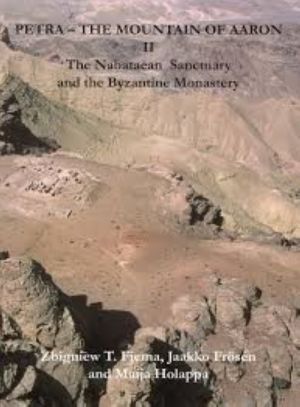Jabal Hārūn (the Mountain of the Prophet Aaron), located near the ancient city of Petra in southern Jordan, is according to Jewish, Christian and Muslim traditions, the burial place of Aaron, Moses’ brother. Since 1997, the Finnish Jabal Hārūn Project (FJHP), directed by Prof. Jaakko Frösén and funded by the Academy of Finland and the University of Helsinki, has carried out archaeological excavations at a Byzantine monastery located on the high plateau of the mountain. Volume II, which is the third and final publication of the FJHP publication series, is a major exposition of all excavated structures and the material remains associated with the entire occupation of the site (1st century A.D. - 11th/12th century A.D.), with the exception of the church and the chapel (FJHP volume I, 2008). Including 30 contributors and 23 chapters, this volume presents a wide range of subjects related to the history and archeology of the site and its structures. The publication concludes with a major presentation of the cultural history of the site. In addition, the volume is accompanied with a DVD that displays a virtual model and tour of the excavated church and the chapel.
Jabal Hārūn (the Mountain of the Prophet Aaron), located near the ancient city of Petra in southern Jordan, is according to Jewish, Christian and Muslim traditions, the burial place of Aaron, Moses’ brother. Since 1997, the Finnish Jabal Hārūn Project (FJHP), directed by Prof. Jaakko Frösén and funded by the Academy of Finland and the University of Helsinki, has carried out archaeological excavations at a Byzantine monastery located on the high plateau of the mountain. Volume II, which is the third and final publication of the FJHP publication series, is a major exposition of all excavated structures and the material remains associated with the entire occupation of the site (1st century A.D. - 11th/12th century A.D.), with the exception of the church and the chapel (FJHP volume I, 2008). Including 30 contributors and 23 chapters, this volume presents a wide range of subjects related to the history and archeology of the site and its structures. The publication concludes with a major presentation of the cultural history of the site. In addition, the volume is accompanied with a DVD that displays a virtual model and tour of the excavated church and the chapel.













